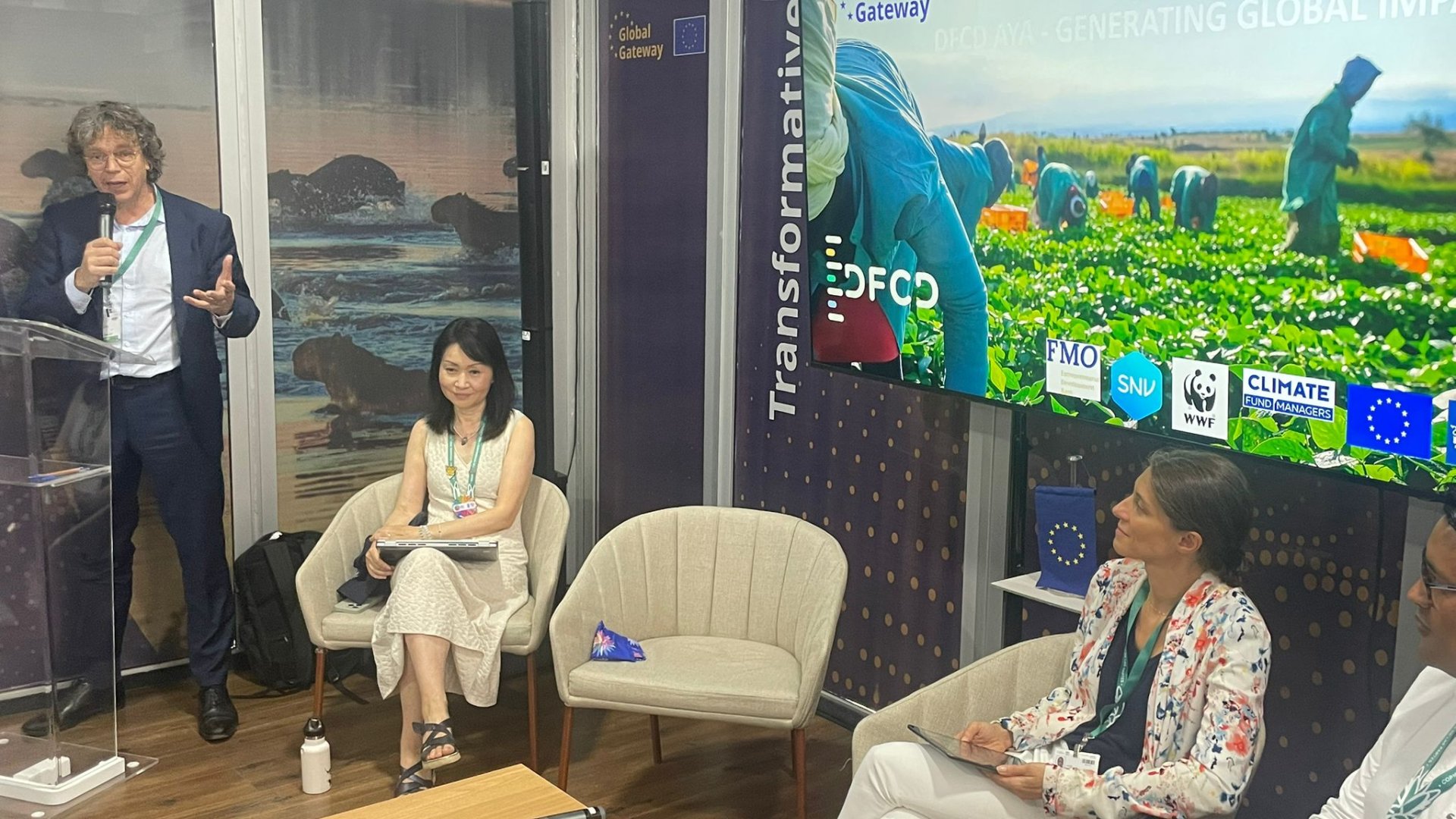Looking back on COP16: Reflections from Cali
FMO, SNV and WWF delegates represented the DFCD at COP16. They share their reflections in this blog.
FMO: A sense of urgency
The urgency of addressing climate change, biodiversity loss, and food insecurity was palpable at COP16. With the Sustainable Development Goals (SDGs), Paris Agreement, and Biodiversity Framework all targeting 2030, the need for substantial and blended finance has never been more critical. The rapid disappearance of biodiversity underscores this urgency.
A significant focus of the discussions was the role of the private sector in supporting Target 19, which aims to mobilize 0 billion per year. However, local and indigenous communities voiced concerns that financing is not reaching them, expressing distrust in the current funding mechanisms and the private sector. This sentiment was set against the backdrop of tough negotiations between government officials, highlighting the deep divisions between the global north and south.
Despite these challenges, there is a growing consensus that we can increase financing flows to biodiversity only through collaboration, innovation, and a higher-risk investment appetite. Momentum is building, particularly in Latin America and the Caribbean (LAC), with COP30 in Belem on the horizon. Notably, there is growth in small-scale private sector projects in Colombia, although aggregation remains challenging.
COP16 saw an increased presence of Multilateral Development Banks (MDBs) and Development Finance Institutions (DFIs) compared to COP15. These institutions showcased investments in sustainable agriculture, forestry, recycling, infrastructure, and energy projects. Numerous meetings emphasized both the need and the opportunities for "biodiversity plus" investments.
With COP16, climate, food systems, and biodiversity are converging under a comprehensive global agenda. It was inspiring to see civil society and communities actively addressing the "Triple Crisis" of climate change, biodiversity loss, and food insecurity.
SNV: A focus on people and planet
This "People’s COP" marked a pivotal moment for global biodiversity, with ambitious targets offering hope for reversing ecological decline. While the decision on Resource Mobilization wasn’t adopted, COP16 signals a shift toward locally led, inclusive, and ambitious conservation and sustainable use goals. Yet, the road remains challenging for Africa and developing countries.
At COP16, SNV emphasized three key themes:
- Investments and Financing: Increased commitments can empower developing nations to protect ecosystems while meeting socio-economic goals. The Dutch Fund for Climate and Development (DFCD) is an innovative model, mobilizing finance for biodiversity through integrated climate finance.
- Local Communities: Indigenous peoples, pastoralists, and artisanal fishers have stewarded ecosystems for generations. Agriculture and livestock management are crucial not only for biodiversity but also for sustaining livelihoods and climate resilience.
- Beyond Projects – Landscape Approaches: Collaborative, landscape-based partnerships connect local actors to take collective action on climate, biodiversity, water security, and regenerative economies. Together with partners like IKEA, GEA, and Regen10, SNV champions transformative approaches to achieve scalable, lasting impact.
WWF: Time to get practical
WWF-NL held workshops which dove into the insights from their bi-annual Living Planet Report, which notes a 73% drop in monitored species worldwide, and on Target 15 of the Global Biodiversity Framework which looks at business impact on nature. From the DFCD side, they also supported an event with WWF Colombia’s Green Finance platform ‘Invest’, which brought together investors, policy-makers and innovative businesses who are committed to benefiting biodiversity through their operations. Among them was ALSEC, a recent Origination Facility signing, who, by tackling the problem of dairy waste, are contributing to better outcomes for biodiversity in Colombia.
As UNFCCC COP29 wraps up in Baku, we are dedicated to advancing these discussions on climate finance, food systems transformation, and nature-based solutions. Let’s continue to champion scalable solutions that strengthen local communities and protect our planet.

